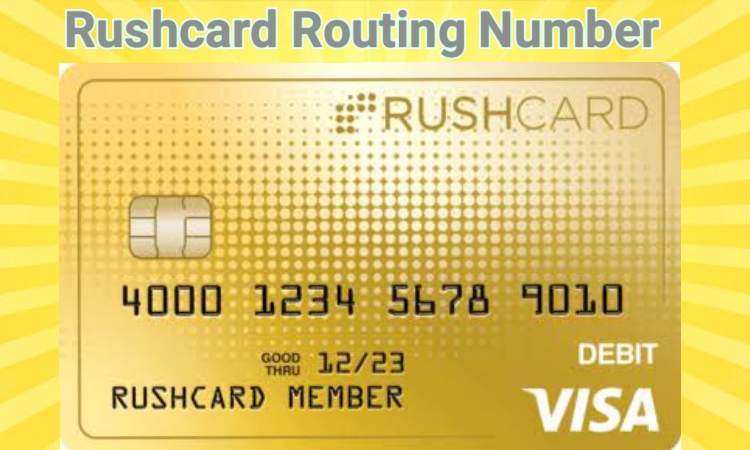

UniRush, LLC will be purchased by Green Dot Corporation in a deal announced today. The purchase was seen as a way for Green Dot to expand its reach in the prepaid debit card market. Is Rushcard Still In Business?Ĭredit: In 2016, Green Dot Corporation purchased RushCard, a prepaid debit card company, for $147 million. The bank provides all of the features of a bank debit card, including ATM access, direct deposit, and the ability to make point-of-sale purchases. RushCard has partnered with MetaBank and Visa to offer the card, which can be used to pay bills online or in person. In a statement Monday, Green Dot announced that it would acquire UniRush, the parent company of RushCard and Rapid!, as well as UniRush’s payroll debit card. Green Dot, a competitor to RushCard, a prepaid debit card company founded by hip-hop mogul Russell Simmons, announced plans to acquire the company for $147 million. Carr expressed his dissatisfaction with how the situation had been handled. She was told by RushCard that her remaining balance would not be refunded for at least 7 to 10 days. In late October, Yahoo Finance contacted Yaisa Carr and RushCard customer service for 35 minutes. Cassandra Coates lost her RushCard, and she was unable to pay for her car or truck, which was later repossessed. Russell Simmons, the co-founder of RushCard, tells me that there is an investigation into the incident, but that it has nothing to do with his company. Users’ RushCard accounts had the same amount in their funds. Customers can save up to $500 per month before receiving a $2 discount off the monthly fee. The company suggests that people save three to six months’ worth of living expenses in a Rush Goals account. Users can save up for short-term goals and track their progress with RushCard’s Rush Goals product. Customers will not be charged fees from November 1 to February 29 as a result of the company’s decision to establish a fee-free holiday period. The card is not publicly available, but it is likely among the top ten in the industry based on how many customers it serves. Following the launch of the less expensive fee structure, the company has remained active. There were more than $65 billion in prepaid cards loaded by consumers in 2012, up from less than $20 billion in 2009.ĭespite criticism, RushCard has been successful because of its success in part due to Simmons’ popularity with customers. According to the prepaid card industry, RushCard charged some of the highest fees. In addition to preventing another crisis, Russell Simmons says he intends to do so. RushCard’s phone lines more than doubled from 5,000 to 20,000 calls per day to 20,000 calls per day. RushCard, a prepaid debit card company, suffered a 17-day outage in October. After being squeezed out of the banking system, prepaid debit card holders turn to cards as a last resort. While 10,000 customers have had trouble since the outage occurred four days ago, the company claims that they are all fixed. Why there isn’t a contingency plan? Amir Wain, the CEO of i2c, would not comment. It is not uncommon for migrations to take more than a year to complete, including weeks of parallel testing. According to an e-mail sent to its customers by RushCard, it took five hours for the company to complete the transition. An expert believes this is one of those hundred-year storm situations in which everything went wrong. Federal regulators have now threatened to revoke RushCard’s license, and one of the most loyal customers may be among the casualties. RushCard customers were unable to access their prepaid debit cards on October 12. Green Dot is a leading provider of prepaid debit cards, and the acquisition is expected to help RushCard grow its customer base. In 2020, the company announced that it would be acquired by Green Dot Corporation. Despite these efforts, RushCard has struggled to attract new customers. It also started offering customer support 24/7. In 2019, the company launched a new app and updated its website. Since then, RushCard has been working to improve its customer service and rebuild trust. The company also agreed to provide affected customers with credit monitoring services for free. This led to a class-action lawsuit, and in 2016, RushCard agreed to pay $19 million to settle the case. In 2013, RushCard experienced technical problems that left many of its customers without access to their money for several days.


 0 kommentar(er)
0 kommentar(er)
